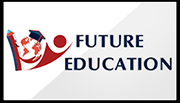THE SELF-REGULATION ABILITY OF FUTURE MUSIC TEACHERS': STUDENTS' INSIGHTS
DOI:
https://doi.org/10.17501/26307413.2021.4103Keywords:
self-regulation, future music teachers, training, stage frightAbstract
With the continuous progress and development of society, people's pursuit of life is no longer limited to material pursuit, more and more people begin to yearn for high quality spiritual life. Music as an important part of the art category, the audience in the world is increasing. Music education provides a professional foundation for the spread of music. As the inheritor of music art, future music teachers, that is, music education students, shoulder the important task of laying the foundation of music and exploring the cultivation of outstanding art talents. At the same time, they also face the challenge of how to better improve their professional quality. In order to improve the professional level of music education students, schools provide them with various training and practical activities. In the face of national, social and future students and other different aspects of pressure, it is particularly important for future music teachers to do a good job of self-regulation. This questionnaire will take the music education students as the survey object, through consulting various materials, summarizes the current training projects and contents provided by China and Lithuania for music education students, and formulates a semi-structured interview questionnaire of qualitative research. In the case of collecting the questionnaire and ensuring that the questionnaire meets the needs, this paper discusses the situation of self-regulation in the training of music students in school through qualitative analysis, and puts forward some suggestions and methods of self-regulation from the aspects of system and individual.
Downloads
References
Bandura, A. (1986). Social foundations of thought and action. Englewood Cliffs, NJ.
Bandura, A., (1997). Self-efficacy: The exercise of control. New York: W. H. Freeman
Baumeister, R. F., Vohs, K. D., & Tice, D. M. (2007). The Strength Model of Self-control. Current Directions in Psychological Science.
Cohen, L., Manion, I., & Morrison, K. (2007). Research Methods in Education, New York: Routledge.
Circular of the Ministry of Education on the issuance of the National Programme for the Guidance of Undergraduate Courses in Musicology (Teacher Education) in Colleges and Universities[EB/OL],
Daucianskaite, A., & Zydziunaite, V. (2020). Documents regulating the vocational training of music performers in Lithuania and internationally: directions, characteristics and shortcomings. SOCIETY. INTEGRATION. EDUCATION. 97-106. doi:10.17770/sie2020vol1.5022
Goleman, D. (2015). Self-Regulation: A Star Leader’s Secret Weapon. Date of access: 03/01/2017, http://www.danielgoleman.info/daniel-goleman-self-regulation-a-star-leaders-secret-weapon/.
Guan, J. H. (2012). Music Curriculum and Teaching Research, Nanjing Normal University Press, 2.
Gao, J. (2019). Thinking on Cultivating Talents of Music Education in Colleges and Universities from the Perspective of Teacher Training Professional Certification. Music Education Garden. 7, 54-56.
Guo, B. (2019). Construction of Practical Teaching System of Music Education Specialty under the Background of "Double First-class" Construction. Chinese Music (bimonthly). 3, 134-136. 10.13812/j.cnki.cn11-1379/j.2019.03.016
Kirliauskienė, R. (2017). Self-regulation peculiarities of future music teachers. Educational Alternatives, 15, 100-107.
Kirliauskienė, R. (2018). The peculiaritles of self-regulation of future music teachers during the practice. 4, 69-78. doi: https://doi.org/10.17501/icedu.2018.4108
Kirliauskienė, R., & Abramauskienė, J. (2019). SCHOOL PRINCIPALS’ ATTITUDE TOWARD MUSIC EDUCATION IN LITHUANIA. The European Proceedings of Social & Behavioural Sciences. 94-103. doi:10.15405/epsbs.2019.01.9
Li, R. (2019). Psychological preparation before keyboard test and competition. BEI JI GUANG, 265(11), 24-25.
Lasauskiene, J., & Sun, Y. D. (2019). Challenges and visions in school music education: Focusing on Chinese and Lithuanian realities [J]. New Trends and Issues Proceedings on Humanities and Social Sciences. 6(1), 38-46. doi: https://doi.org/10.18844/prosoc.v6i1.4153
Michiyuki, T. (2011). I Never Thought I Could. Jiangsu Province, Suzhou: Gu Wuxuan Press House.
Rauduvaite, A., & Lasauskiene, J. (2013). Factors Determining Personal Career Planning and Choices of Profession among Future Teachers of Music. Procedia - Social and Behavioral Sciences. 83, 175 – 179.
Rauduvaite, A., & Lasauskiene, J. (2015). Educational Activities of Contemporary Music Teacher: Analysis of Career Expectations of Students and School Heads [J]. Procedia - Social and Behavioral Sciences 205, 110 – 116.
Rauduvaite, A., & Du, Y. D. (2018). The analysis of music teacher education programmes in Lithuania and China [J], International Journal of Learning and Teaching. 10(1), 38-49. doi: https://doi.org/10.18844/ijlt.v10i1.3144
Downloads
Published
How to Cite
Issue
Section
License
Copyright (c) 2021 Author(s)

This work is licensed under a Creative Commons Attribution 4.0 International License.







